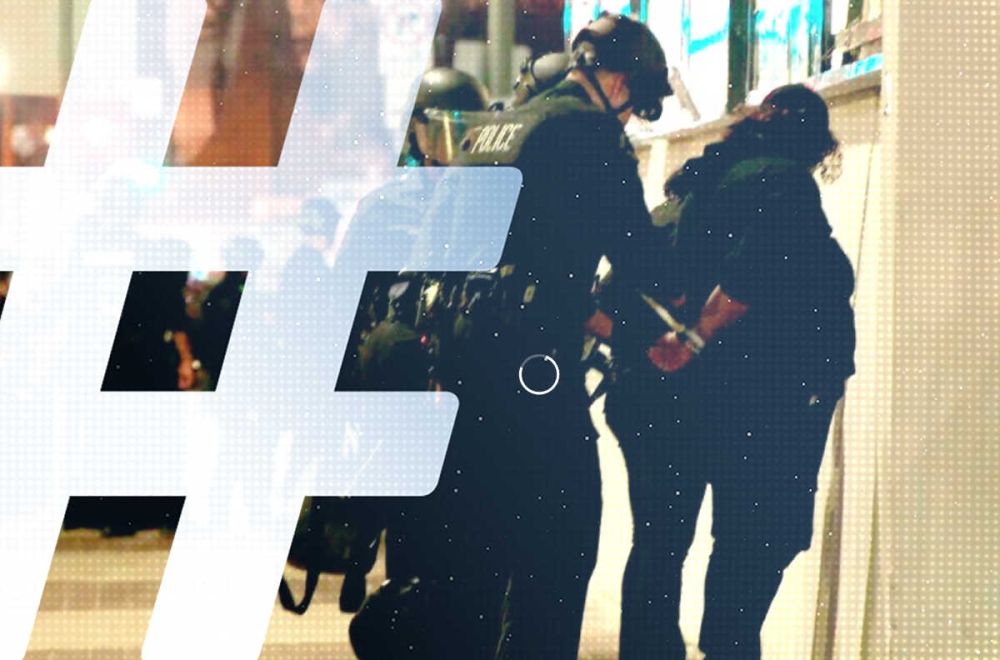
The sources chose not to leave their names, fearing retaliation from the US government. Six long months ago, these words would have been nearly unthinkable in a mainstream news article from a US media outlet. Such language is now commonplace. And late last month, as the Trump administration made a full-fledged assault on international students at Harvard, they even came from the most unlikely of sources: China’s government-run Xinhua News Agency.
The shift signals how Trump’s heavy-handed tactics have inadvertently legitimized China’s long-hollow claims about Western democratic failures, at least temporarily.
For decades, one of the most prominent themes in what the Chinese Communist Party (CCP) calls “external propaganda” (外宣) — the marshaling of narratives to support China’s core interests and distract from criticism of its poor record on human rights — has centered on the perils caused by a hegemonic United States that takes a self-interested and hypocritical view of rights and freedoms. State media, and periodic reports from China’s foreign ministry, have touted the notion that the US is a toxic cocktail of “fake human rights” (假人权) and “real hegemony” (真霸权).
To date, the fatal weakness of this strategy has been its rhetorical emptiness. Coming from state-run outlets whose openly-stated allegiance is to a single-party regime with the world’s most sophisticated system of information control, for example, the accusation that America’s “so-called freedom of speech” is an outright lie has had little moral substance or impact.
Since Donald Trump came to office in January, however, China’s empty propaganda about American despotism has gained factual weight in ways Chinese leaders could scarcely have anticipated. The heavy-handed acts of the Trump administration — from dismantling USAID, Voice of America and Radio Free Asia to launching federal investigations into Harvard and Columbia universities, and now deploying the US military against civilians — have provided an endless stream of factual proof of what China has long insisted against American democratic ideals.
The result in regard to US reporting is an odd new situation for Chinese state media that for years have hitched their wagon to the star of outright falsehood: Let the facts speak for themselves.
A Riotous Reversal of Roles
The shift is perhaps most visible in Xinhua’s coverage of recent protests in Los Angeles, which have received wide-spread attention in China since President Trump sent in the National Guard on June 7 to crack down on civilians protesting his anti-immigration policies. Xinhua journalists on the ground portrayed themselves and the protestors as victims of a violent administration. They reported that they, like other journalists on the scene, had been injured by rubber bullets and tear gas canisters. They positioned themselves as trusted intermediaries, passing along the message from the protestors — in coverage syndicated globally — that they were simply “hard-working local community residents who wanted to express their opinions peacefully.”
Hearing voices from the front lines of protest is something that never happens when it comes to local protests in China. To the extent that such events are covered, state media portray those involved as sinister actors with “ulterior motives.”
The most obvious example is the Hong Kong protests of 2019-2020. The parallels to the events in Los Angeles are striking: peaceful local demonstrations, in reaction to a government insensible to local political will, prompt a heavy-handed response that deepens tensions and stokes violence. In one 2019 op-ed, Xinhua called these Hong Kong protestors “pawns and cannon fodder,” manipulated by a group of elites “loyal to Western anti-China forces” whom the news agency condemned as “scum.”
In yet another unfortunate parallel, Trump claimed late last week, completely without evidence, that the protesters in Los Angeles were paid agitators — “[They’re] paid, they’re professionals, they’re insurrectionists, they’re troublemakers,” he said.
With American protesters now filling a similar role in Xinhua’s narratives — but as sympathetic victims rather than dangerous agitators — protests against the Trump administration, and Trump’s reaction to them, are playing into long-term Chinese state media strategies to discredit the US.
At the center of Xi Jinping’s media policy is the notion that China must counteract a longstanding imbalance in global public opinion, in which “the West is strong while we are weak” (西强我弱). Since 2021, the goal has been to meet Western, American-led dominance with the counter-narrative that “the East is rising while the West is declining” (东升西降), and the idea that China offers the world stable governance against the chaos of the West (中治理西乱).
That narrative, many would say, has been failing — and in the nearly 20 years since CCP leaders began grumbling officially about their serious soft power deficit, China has made few advancements. But that may be changing, at least in the short term, precisely because the US administration has failed to understand the longstanding source of American strength.
Imbalances in public opinion favoring the West have never been about imbalances of state power, though this is always the lens that China’s leaders apply. For all of their shortcomings, media in the West have thrived because they have remained critical and free of governments, developing real and lasting credibility with their audiences at home and around the world. And yet, recent threats by the Trump administration against media outlets like the Associated Press and NPR, coupled with his promise over the weekend to meet “No Kings” protesters with “very big force,” offer precisely the kind of authoritarian overreach that Chinese state media have long hypocritically claimed defines American democracy.
Even as these actions mirror the authoritarian tactics of the Chinese state, they provide fresh ammunition for its narrative machinery. Make no mistake: Trump’s assault on democratic norms is an unexpected gift for China’s leaders, and one that may in the long term prove costlier than any trade war or diplomatic standoff. By challenging the democratic practices that have distinguished American power from authoritarianism, the administration risks handing Beijing its most effective propaganda victory in decades.

Alex Colville




















